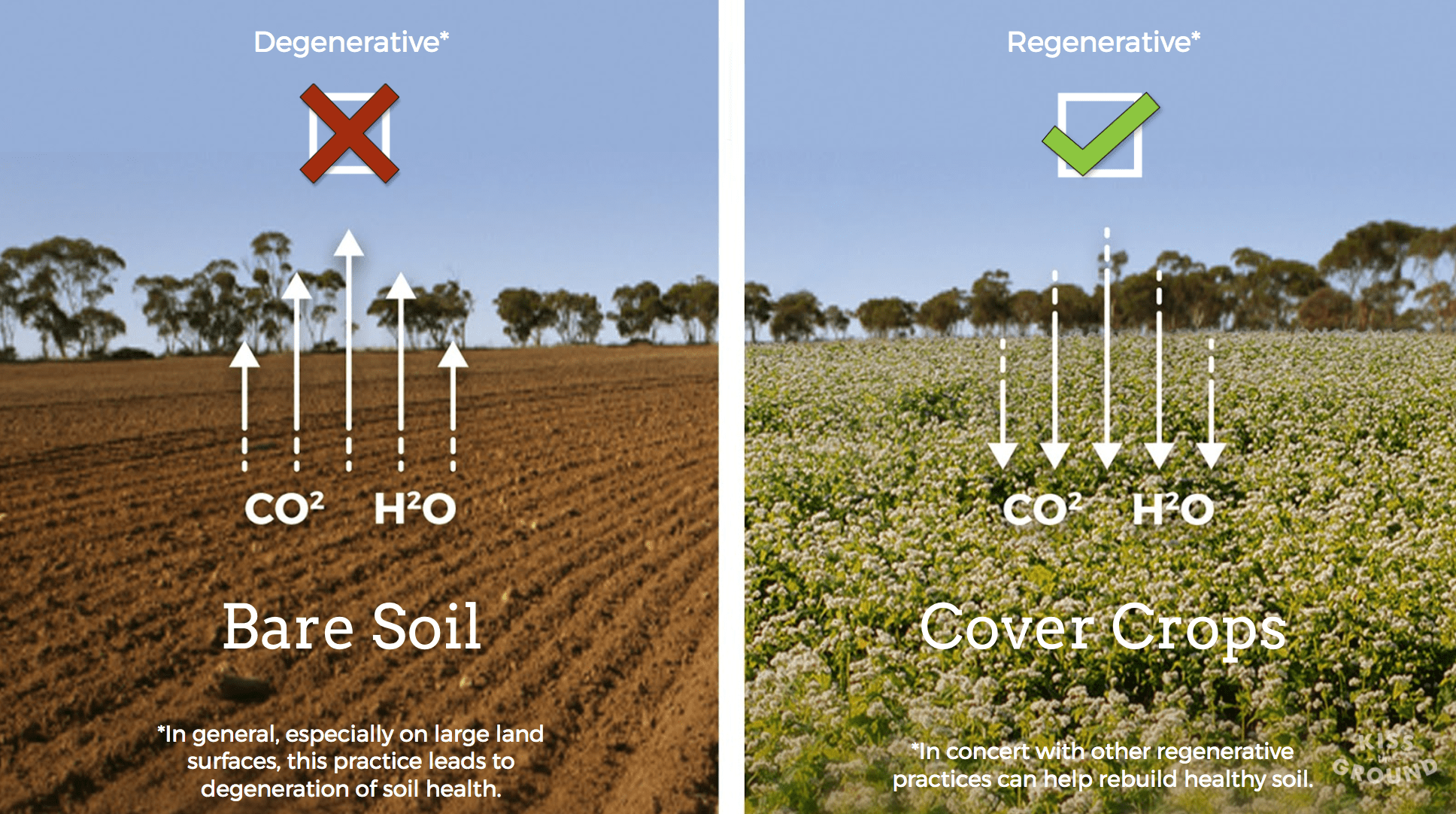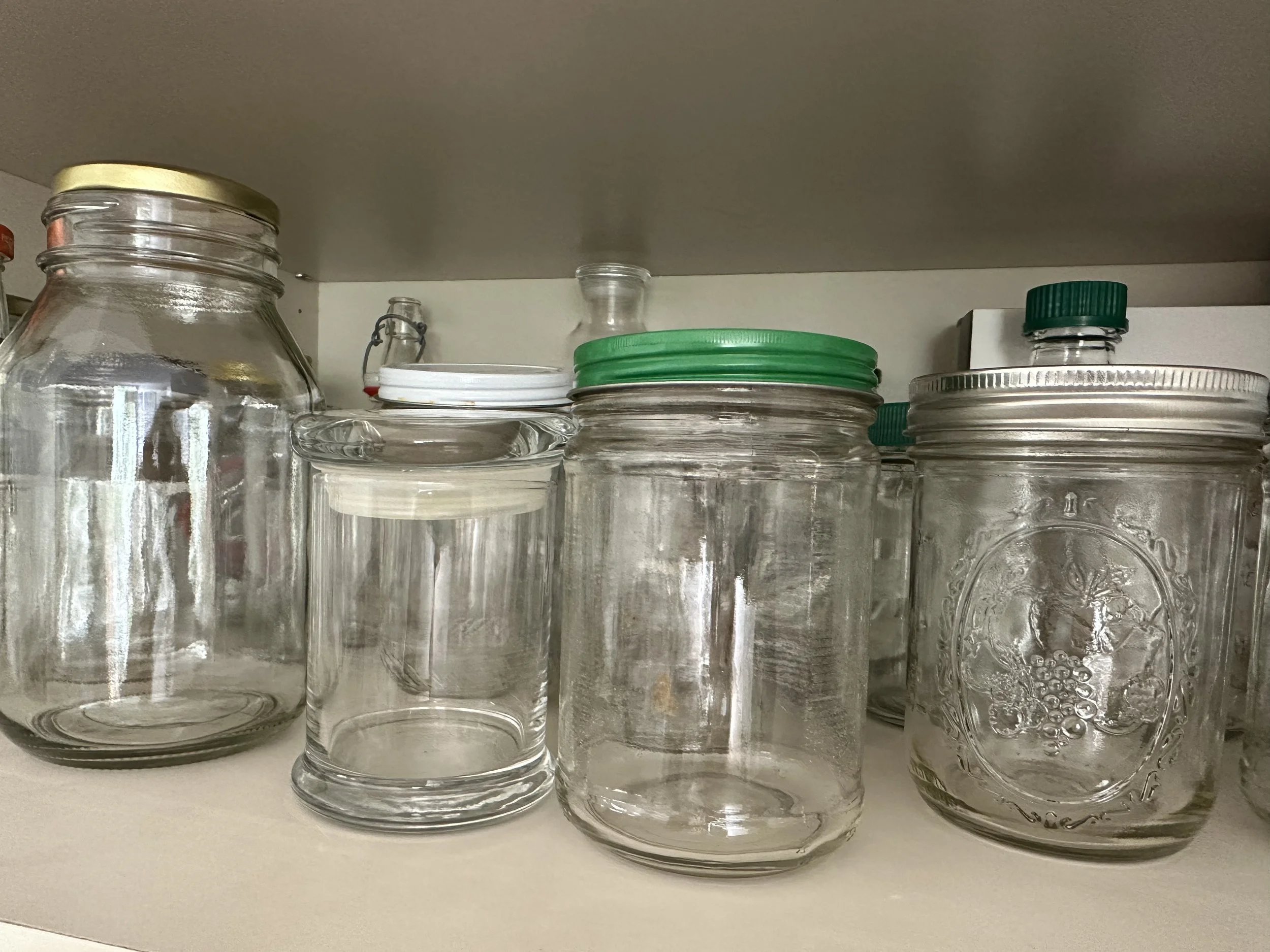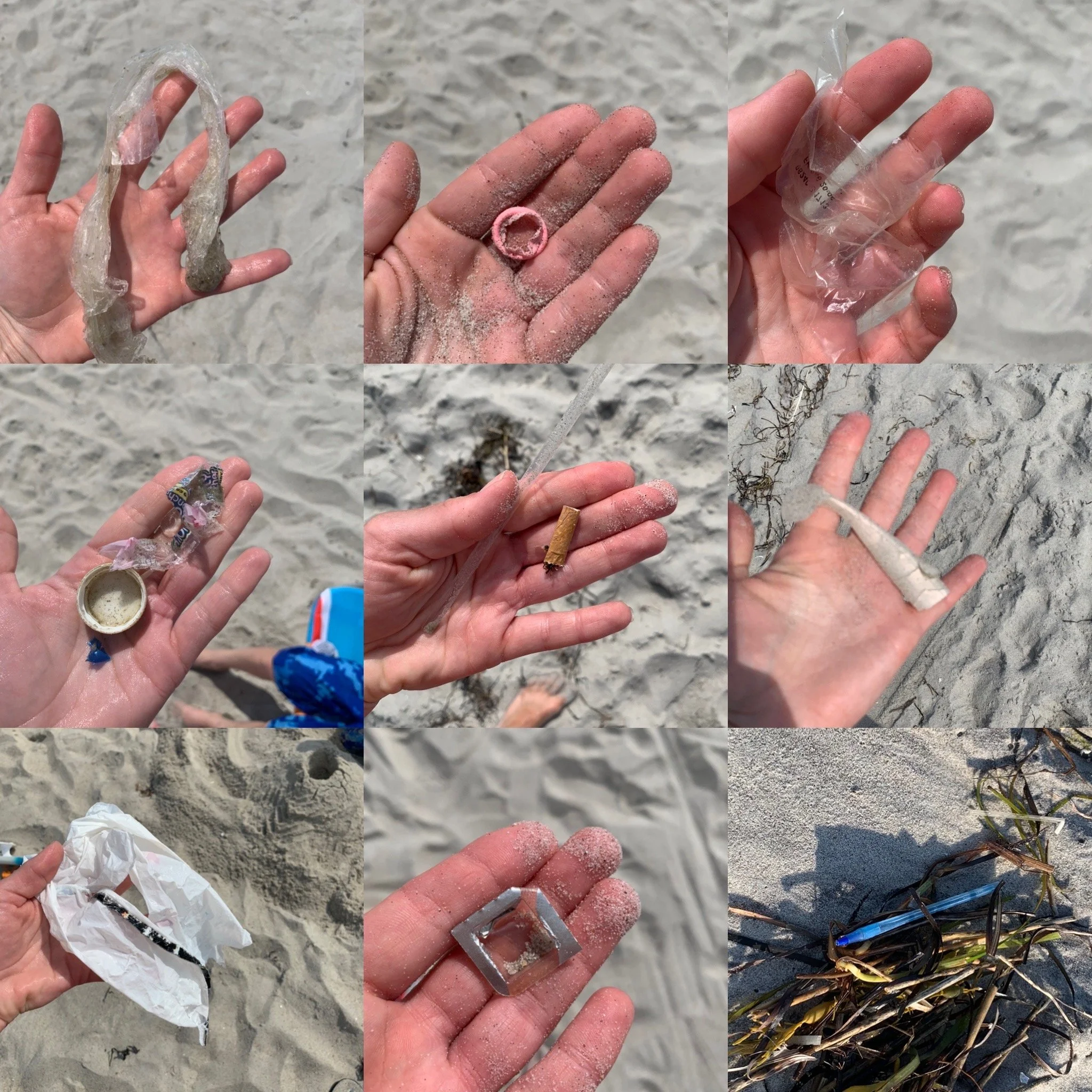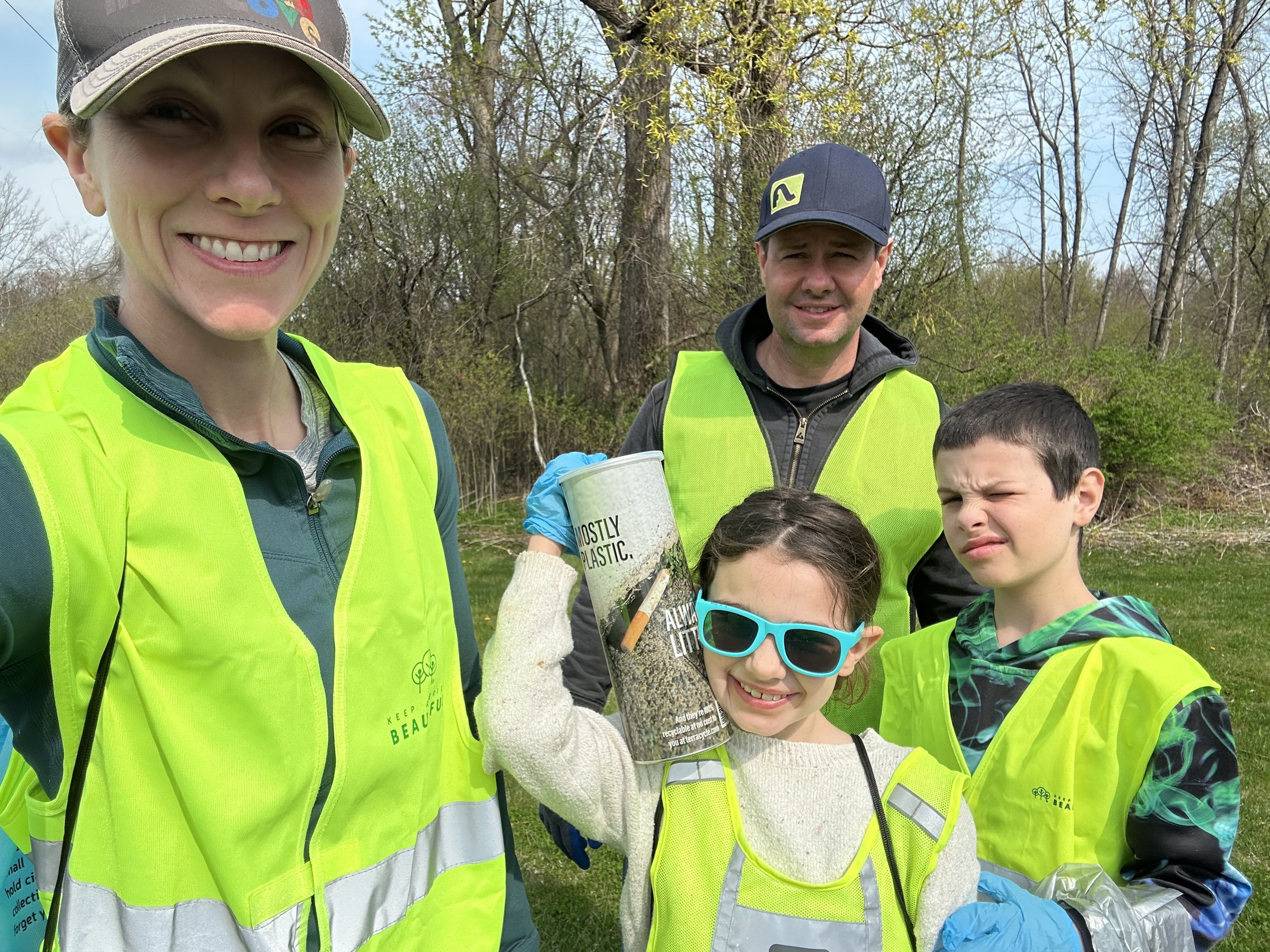Loving the Earth Everyday
We all love this planet, heck it’s the only one we have. It’s the only place we have to live. “There is no Plan B.” Knowing that Earth Day is upon us, what are some things or ways that we can enhance our love for this place we call home.
1. Support Local & Regenerative Farming
Buying your food from local farmers, producers and farmers markets can help reduce our carbon footprint by reducing the distance our food travels from farm to table. You’d be shocked to know the how much carbon is emitted just to get one hamburger (1 pound ground beef = 37.485 Pounds!). Supporting local agriculture also helps support sustainable farming practices and promotes biodiversity. Often these local farms may be practicing regenerative farms practices. Regenerative farming is a type of agriculture that focuses on improving soil health, biodiversity, and ecosystem services. It involves using techniques like cover cropping, crop rotation, and reduced tillage to regenerate the soil, rather than depleting it. It’s also allowing livestock to roam freely within the fields to help nourish the soil and consume the foods their bodies are requiring at any given time (animals are awesome at self regulation). By adopting regenerative farming practices, we can support healthy soil, clean water, and a thriving ecosystem. We can support regenerative farming practices by voting with our dollars and purchasing their goods vs. conventional meat & produce.
2. Recycle ♻️
We are pretty acclimated to recycling cans, paper and cardboard, but what about recycling your plastic film, wrappings and bags? Yup you can. Though they are not accepted in your typical recycling bins, they can be brought to participating drop-off locations which many retail and grocery stores provide receptacles. Click for more info and to find a participating drop-off location near you. Recycling is an important step in reducing our impact on the environment by reducing the amount of waste that ends up in landfills and incinerators. But it’s more than just putting containers into a recycling bin, it’s reusing them in your home. I have been saving glass jars so i can reuse them for my various kitchen preparations. Bone broth is excellently stored in an old pickle jar. Sauces and gravy’s are great in jam jars. Having various sizes on hand is sure to offer some use for you.
3. Reduce Use
I mentioned recycling but another strong alternative is reduce our consumption of single-use items, like plastic bags (to hold produce) when shopping. Reusable bags come in all shapes and sizes or do what i do and simply go without. I wash it before i eat it anyway so why bother with this extra and wasteful step. Another option would be to sore your goods in reusable containers when you’re in need of a refill. My local grocery store has a refilling option for most bulk items and offers a discount if you reuse your own packaging! And I love the freshly ground nut butters better too, the added bonus is they don’t contain any extra salts or oils. Other options are reducing the size of packaging that might be unnecessary. Laundry detergent is now available in sheet form vs those large jugs. Cleaning products are also available in concentrated forms to reduce packaging impact. And yet another option is to use reusable cleaning cloths like Norwex that work with only water (yes it works)! Speaking of cleaning cloths, by using natural ingredients in our environment care products (insect repellant, fertilizers) are another planet loving way to reduce the use of pesticides and other harmful chemicals that can damage our earth.
4. Give a Hoot, Don’t Pollute
I love following the “Leave No Trace” philosophy. Whenever we are walking in nature and I see a plastic bottle or packaging wrapper it really gets me PO’d. Who do these people think they are that they can just leave their garbage behind? As if mother nature is something to be trampled on. No, we need to respect her and pick up our trash along the way. I know accidents happen, we can’t prevent every scrap and bit but we can take diligence whenever we are outdoors and do our part to keep the Earth untattered from our modern enjoyments. These plastic wrappings and have a very detrimental effect on the surrounding ecosystems, not to mention what if an animal were to mistakenly swallow something and choke.
5. Conserving Resources
Conserving Water: Turning faucets on only when needed to rinse your toothbrush vs. having the water running while nothing is happening. Another option would be to fill a water bottle/jug as your water warms-up to avoid that waste. We can use this useful water to give indoor plants a drink. Water really is such a precious resource and using water-efficient appliances can go a long way in conserving water.
Conserving Energy: Are you turning off the lights as you leave the room? Saving money on fuel cost not only helps your wallet but also our Mother Earth. Another option is pursuing alternative fuel options. Technology in renewable energy sources has been growing in these last decades allowing accessibility for greater populations. Solar panels, wind, and hydropower are helpful tool to lower our carbon footprint and offset costs from energy providers. Whatever way we can concern fossil fuels like coal and oil which are major contributors to climate change.
6. Plant Trees & Plants
Trees play a vital role in absorbing carbon dioxide from the atmosphere and providing habitat for wildlife. Planting trees in our communities and supporting reforestation efforts can help reduce our carbon footprint and support a healthy ecosystem. Planting flowers helps to not only to beautify your landscape and visual enjoyment, it supports our bee population. Actually, the best way to encourage bees is by plant a variety of annual flowers, perennials and flowering trees and shrubs so that you have a steady progression of flowering plants from early spring through summer and fall [s].
7. Get Involved
It’s not just what we think and hope for, it’s what we can take action on to achieve a result. Often we can achieve so much more when we join forces with organizations that are also working to make larger gains for Earth conservation. If you truly care and want to make a difference then there are people in this world looking for you. I would check out local communities and national organizations for opportunities to get involved. Where can you can volunteer your time, advocate your power, give some attention or perhaps just give financial support to. For me, I love my local conservation community Sustainable Saratoga They offer several programs including: learning conservation techniques (composting), recycling drives for paint and electronics, events for planting trees and supporting pollinators, and most recently I just joined them for a “Team-Up to Clean-up” roadside cleanup event partnered with Keep America Beautiful where you can find world-wide clean-up events near you!
Here is some (there are sooo many) more information / helpful resources on your Earth Loving Journey
If you have one that you love that isn’t on the list, please add it in the comments!
EWG.org - At the Environmental Working Group, we believe that you should have easy access to the information you need to make smart, healthy choices.
Regenerative Farmers of America - First gen Regenerative Farmers in Virginia who are passionate about supporting grassroots farmers working to change the world. The catologue and support farmers in the regenerative farming movement.
GreenPeace - uses non-violent creative action to pave the way towards a greener, more peaceful world, and to confront the systems that threaten our environment.
Wilderness Society - The Wilderness Society has led the effort to permanently protect nearly 112 million acres of wilderness in 44 states. We have been at the forefront of nearly every major public lands victory.
Bag and Film Recycling - Find where you can Recycle Your Plastic Bags, Film and Wrap at Participating Locations
Food & Water Watch - Food & Water Watch fights for safe food, clean water, and a livable climate for all of us.
Pesticide Action Network - PAN has recognizes the importance of building a healthy, sustainable food system and tackling corporate control of agriculture while cultivating powerful, effective partnerships to complete their work.
Soil Health Institute - We work with many partners to conduct and translate soil health science into action that benefits farmers, the environment, and society.






